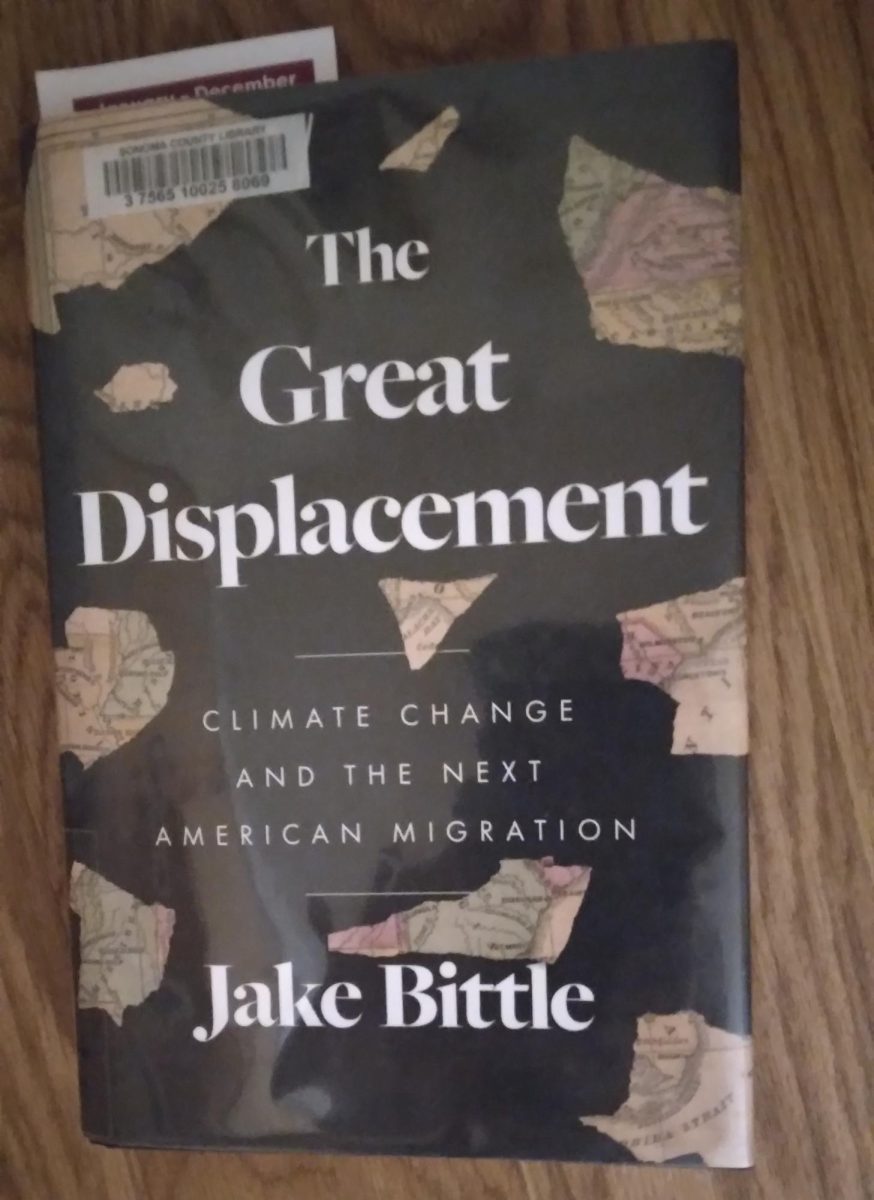Climate change is more than fires and floods. It is who we are, where we live and who controls the show. In his 2023 book, “The Great Displacement: Climate Change and the Next American Migration,” Jake Bittle breaks down the big picture of climate disaster into bite-sized portions that evoke outrage, sympathy, disgust and concern – and hope.
The information in this book is timeless and becomes relevant again with the recent Hurricane Helene disaster in North Carolina, and the devastating fires in Los Angeles which wiped out the Altadena, Eaton and Palisade neighborhoods.
Shortlisted for the 2024 Carnegie Medal for Excellence, this book is loaded with information, leaving readers unable to walk away without thinking, “Wow, I had no idea.”
Bittle is a staff writer at “Grist,” a non profit organization reporting on climate change. Bittle covers climate disasters and adaptation. His interview with Amna Nawaz on PBS News Hour, about insurers leaving California due to repeated fire disasters, prompted a visit to the library to get the book.
“The Great Displacement” takes readers on an unexpectedly interesting journey. Bittle weaves stories of climate disasters into historic decisions made through greed and moral corruption.
Journeying through several states, Bittle brings us to communities that have experienced damage due to fire, flooding, erosion and drought. He talks with the people who have purchased homes in these areas – the same people who have been cheated and bankrupted by insurance companies, who have abandoned their dreams, and who have been forced to relocate to start again.
Bittle exposes federal programs like FEMA, whose aid and mandated relocations have both helped and hindered families. He exposes how insurance-driven bankruptcy has devastated homeowners. Bittle literally brings this book home by covering the Tubbs Fire and the housing market fallout in 2017.
What is surprising about his research and revelations is how long it’s taken for the bad decisions of the past to be recognized and dealt with today. Historically, he teaches us how these decisions have mitigated climate catastrophe, and how the moral lack of climate proofing is currently playing out. Scientists have been heeding the call for decades – yet the powers that be are only just starting to listen.
He explores ideas that are not breaking news: all races, ages and species suffer. Agriculture, livestock, tourism, energy, corporate, nonprofit and otherwise. Nothing and no one escapes the climate crisis. Even the wealthy will have to migrate somewhere.
He raises questions about the promises made by various countries to enact key goals: Where are the rules holding them accountable? Is anyone meeting those goals? Are these wealthy nations going to fully recognize the crisis, change their stance and overhaul systemic issues with insurance, mortgages and climate-related immigration?
The author also poses an interesting conundrum – wealthy countries caused the climate crisis. Don’t they have a duty to help climate migrants from poorer nations coming here? “What do we owe to each other?”
Bittle wrote this book in a way that empowers readers. Presenting the content in such a way that these are the facts – there is no fear mongering. This is a story about our history of decisions and mistakes – our lesson in climate migration.
This book was written before Donald Trump’s second term as president, when the United States was actively working to help climate migrants, both internal and international, for decades. Who knows what will come in a future that is already looking fierce and hopeless with Trump’s ignorant stance on climate change. A sequel by Jake Bittle would be very telling for the future readers.
Understanding how past decisions are affecting us can engage action in building a better future. There is hope, if we all play our part. This is a must-read for anyone who cares about our planet, and our future.




